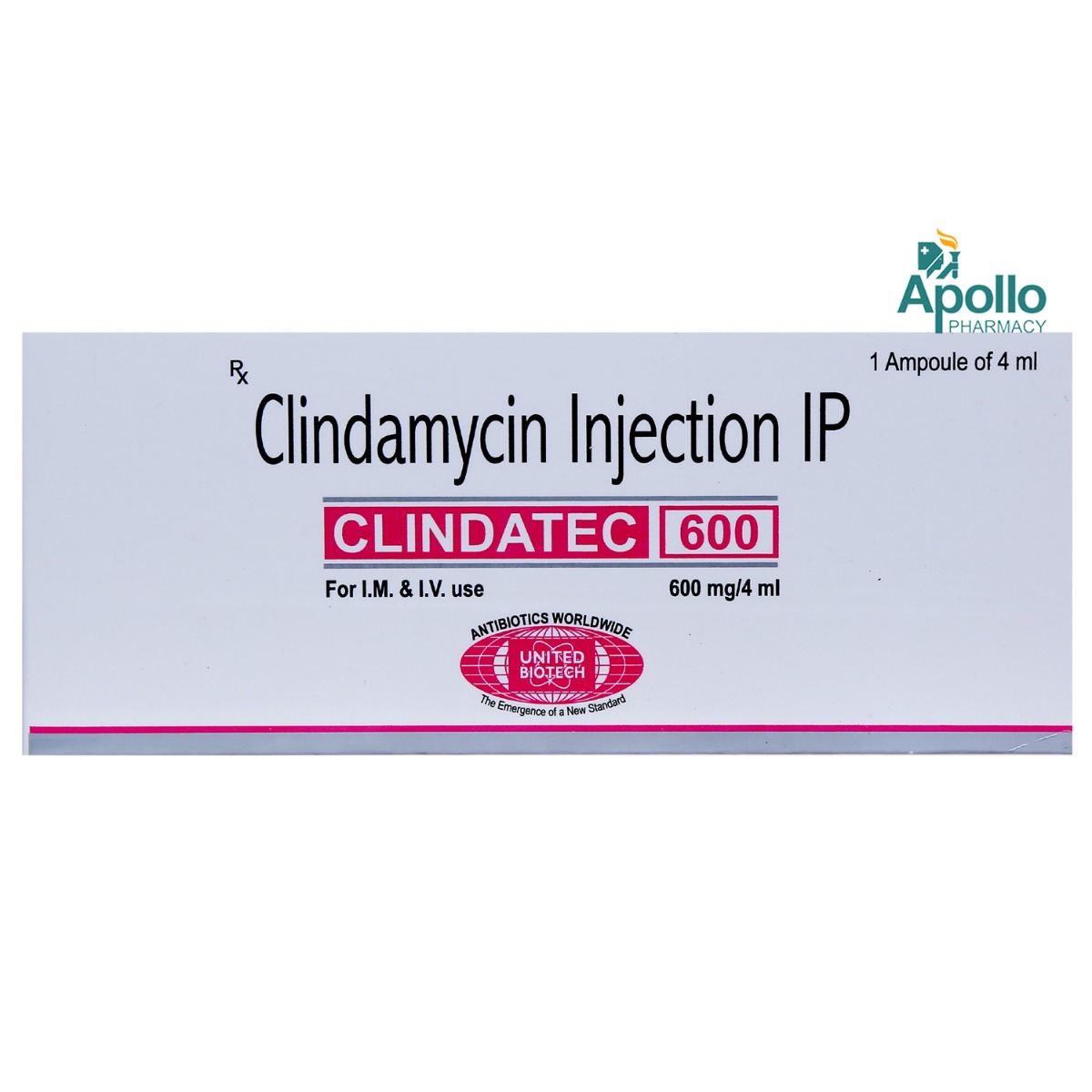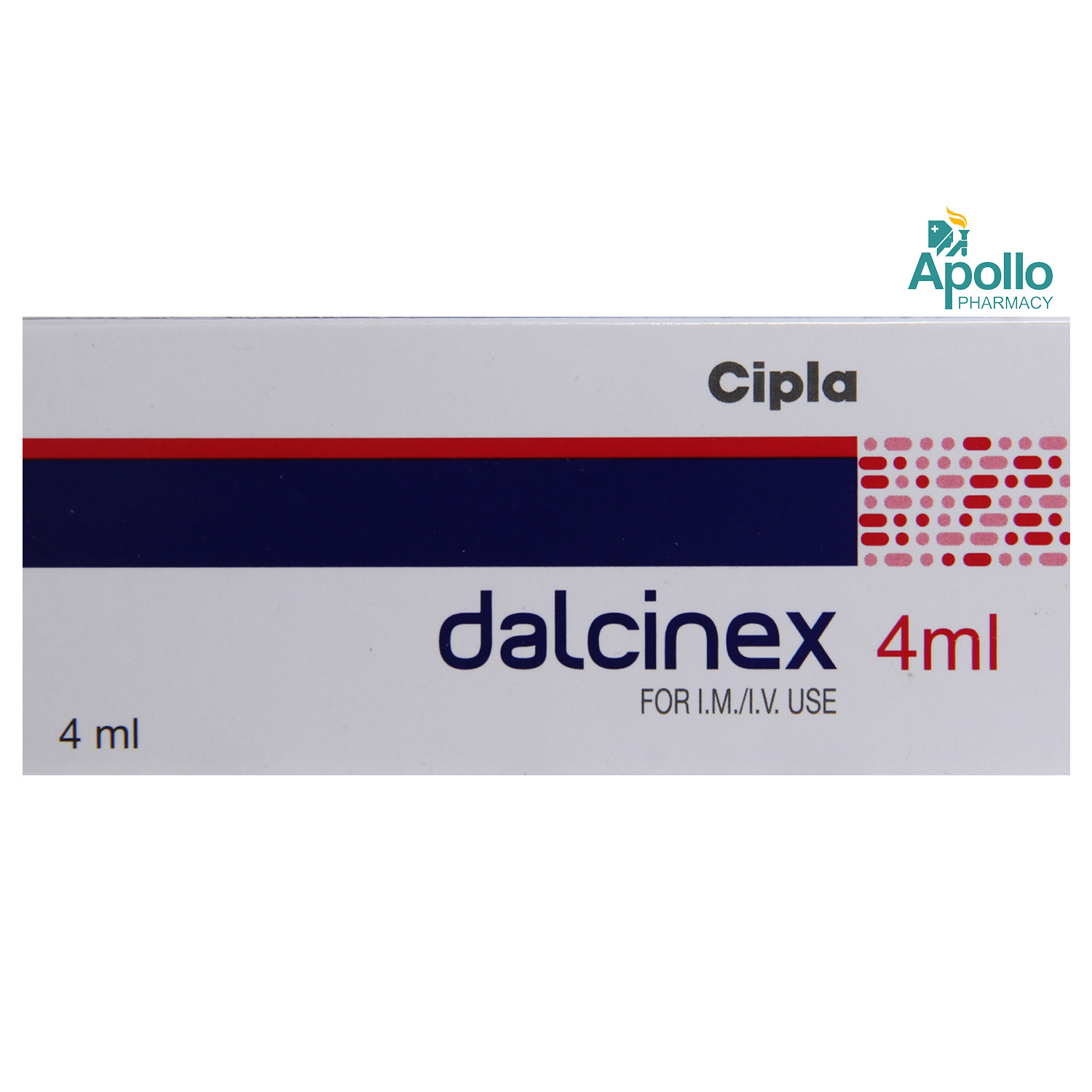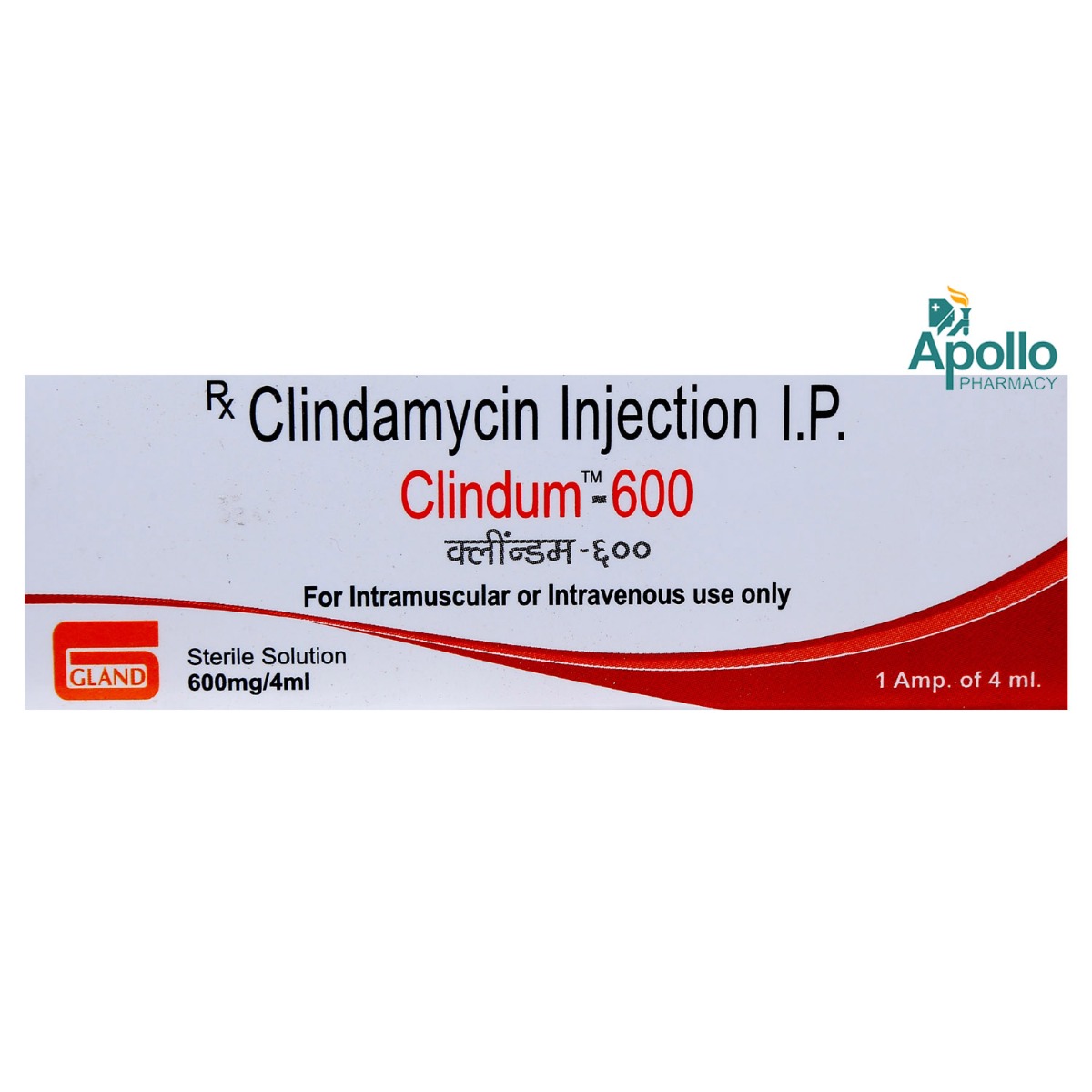Clinmet 600 Injection

MRP ₹215.4
(Inclusive of all Taxes)
₹32.3 Cashback (15%)
know your delivery time
Provide Delivery Location
Composition :
Manufacturer/Marketer :
Consume Type :
Return Policy :

Secure Payment

Trusted by 8 Crore Indians

Genuine Products
Therapeutic Class
Country of origin
Author Details
We provide you with authentic, trustworthy and relevant information
FAQs
Clinmet 600 Injection is an antibiotic that treats bacterial infections. It works by inhibiting bacterial protein synthesis, which retards bacterial growth.
Clinmet 600 Injection should be used with proper caution and doctor consultation if you have any liver disease, kidney disease, gastrointestinal diseases (colitis, severe stomach cramps, diarrhoea), yellow food dye allergy, and allergic conditions (asthma, hay fever, eczema).
Clinmet 600 Injection can affect the live vaccines like typhoid vaccine and decrease its effectiveness. Please consult a doctor before you start Clinmet 600 Injection if you are undergoing any vaccinations.
Clinmet 600 Injection may cause abnormal liver function tests as one of its side effects. Please ask your doctor before starting Clinmet 600 Injection if you have any history of liver problems.
Diarrhoea can be a side-effect of Clinmet 600 Injection. Clostridium difficile-associated diarrhoea (CDAD) is also reported during usage of antibiotics like Clinmet 600 Injection. Therefore, if you experience diarrhoea, you are advised to undergo an examination to rule out the chances of CDAD following Clinmet 600 Injection therapy.
Disclaimer
Alcohol
Safe if prescribed
Avoid taking alcohol while using Clinmet 600 Injection since it may worsen the side effects.
Pregnancy
Consult your doctor
Please consult your doctor before taking Clinmet 600 Injection if you are pregnant or planning to conceive.
Breast Feeding
Consult your doctor
Clinmet 600 Injection can be excreted into breast milk when used by a nursing mother. Please consult your doctor before taking Clinmet 600 Injection if you are breastfeeding.
Driving
Safe if prescribed
There is limited data on how Clinmet 600 Injection affects your driving ability. Please seek medical advice for more information.
Liver
Consult your doctor
Let your doctor know if you have any history of liver diseases before taking Clinmet 600 Injection since it may cause jaundice and abnormal liver function tests.
Kidney
Consult your doctor
Let your doctor know if you have any history of kidney diseases before taking Clinmet 600 Injection.
Children
Safe if prescribed
Clinmet 600 Injection should be used in children only when prescribed by a doctor. Your doctor will prescribe Clinmet 600 Injection depending on the child's age and body weight.
Product Substitutes
Reference
- https://www.webmd.com/drugs/2/drug-931/clindamycin-injection/details
- https://www.drugs.com/clindamycin.html#side-effects
- https://www.hpra.ie/img/uploaded/swedocuments/2132447.PPA1151_156_001.68048af4-da55-4413-9a20-e6d58b4c2edd.000001Clindamycin%20leaflet.140204.pdf
- https://www.accessdata.fda.gov/drugsatfda_docs/label/2008/050441s055,050639s016lbl.pdf
About Clinmet 600 Injection
Clinmet 600 Injection belongs to the class of 'antibiotics', primarily used to treat serious bacterial infections such as lower respiratory tract infections like pneumonia, empyema, and lung abscess; gynaecological infections like endometritis, nongonococcal tubo-ovarian abscess, pelvic cellulitis, and postsurgical vaginal cuff infection; intra-abdominal infections; septicaemia or sepsis (blood poisoning by bacteria), and bone and joint infections. Bacterial infection occurs when harmful bacteria grow in the body and causes illness. It can infect any part of the body and multiply very quickly.
Clinmet 600 Injection contains 'Clindamycin' that works by preventing bacterial protein synthesis, leading to the inhibition of bacterial growth. It shows a bacteriostatic effect that stops bacterial reproduction. Clinmet 600 Injection effectively treats infections caused by gram-positive and anaerobic (living without air) bacteria, including susceptible strains of Staphylococcus aureus, Streptococcus pneumoniae, and Clostridium perfringens.
Clinmet 600 Injection will be administered by a healthcare professional. Clinmet 600 Injection may cause side effects, although not everybody gets them. Common side effects of Clinmet 600 Injection include stomach pain, nausea, vomiting, diarrhoea, heartburn, skin rash, pain and swelling at the injection site, and vaginal itching or discharge. Most of these side effects do not require medical attention and gradually resolve over time. If these side effects persist longer, please consult your doctor.
Brief your medical history to the doctor if you are allergic to any of the components in Clinmet 600 Injection. Let your doctor know if you have any liver disease, kidney disease, yellow food dye allergy, colitis (colon inflammation), severe stomach cramps, diarrhoea, and allergic conditions (asthma, hay fever, eczema). Do not use Clinmet 600 Injection while getting vaccinated with live bacterial vaccines (typhoid vaccine) since Clinmet 600 Injection may affect the vaccine's activity. Clinmet 600 Injection should be used only with a doctor's advice during pregnancy and breastfeeding.
Uses of Clinmet 600 Injection
Medicinal Benefits Mweb
Key Benefits
Clinmet 600 Injection is an antibiotic that treats severe/serious bacterial infections. It works by inhibiting bacterial protein synthesis, which inhibits bacterial growth. It shows a bacteriostatic effect, which stops bacterial reproduction but doesn't kill them. Clinmet 600 Injection effectively treats infections caused by gram-positive and anaerobic (living without air) bacteria, including susceptible strains of Staphylococcus aureus, Streptococcus pneumoniae, and Clostridium perfringens. Clinmet 600 Injection is useful in treating lower respiratory tract infections like pneumonia, empyema, and lung abscess; gynaecological infections like endometritis, nongonococcal tubo-ovarian abscess, pelvic cellulitis, and postsurgical vaginal cuff infection; intra-abdominal infections; septicaemia or sepsis (blood poisoning by bacteria), and bone and joint infections.
Directions for Use
Side Effects of Clinmet 600 Injection
- Pain and swelling at the injection site
- Stomach pain
- Nausea
- Vomiting
- Diarrhoea
- Heartburn
- Skin rash
- Vaginal itching or discharge
Drug Warnings
Do not use Clinmet 600 Injection if you are allergic to any of its components. Let your doctor know if you have any liver or kidney diseases, gastrointestinal diseases (colitis, Clostridium difficile-associated diarrhoea), yellow food dye allergy, and allergic conditions (asthma, hay fever, eczema). Do not use Clinmet 600 Injection while getting vaccinated with live bacterial vaccines (typhoid vaccine) since Clinmet 600 Injection may affect the vaccine's activity. Pregnant and breastfeeding women should consult their doctor before taking Clinmet 600 Injection. Avoid alcohol consumption to prevent any undesired effects while using Clinmet 600 Injection.
Drug-Drug Interactions
Drug-Drug Interactions
Login/Sign Up
Co-administration of Carbamazepine and Clinmet 600 Injection together may result in reduced blood levels of Clinmet 600 Injection, which could make it less effective in treating your disease.
How to manage the interaction:
Although taking carbamazepine and Clinmet 600 Injection together can possibly result in an interaction, it can be taken if a doctor has prescribed it. If you experience any symptoms like fever, it is advised to consult a doctor. Without consulting a doctor, never stop taking any medications.
Co-administration of Capreomycin with Clinmet 600 Injection can increase the risk of kidney or nerve damage.
How to manage the interaction:
There may be a possibility of interaction between Clinmet 600 Injection and Capreomycin, but it can be taken if prescribed by a doctor. Do not discontinue any medications without first consulting your doctor.
When Clinmet 600 Injection is taken with Fosphenytoin, it can cause the body to process Clinmet 600 Injection faster.
How to manage the interaction:
Although there is a possible interaction between Clinmet 600 Injection and Fosphenytoin, you can take these medicines together if prescribed by your doctor. If you notice any symptoms like sudden drowsiness, fatigue, confusion, itching, burning, or tingling sensation, abnormal body movements, or loss of coordination, make sure to contact your doctor right away. Do not stop using any medications without first talking to your doctor.
Concomitant use of Clinmet 600 Injection with itraconazole can reduce the metabolism and increase the levels of Clinmet 600 Injection in the body. This may increase the risk or severity of side effects.
How to manage the interaction:
Although there is a possible interaction, Clinmet 600 Injection can be taken with itraconazole if prescribed by the doctor. Consult a doctor immediately if you experience persistent vomiting, nausea, abdominal pain, or diarrhea. Do not stop using any medications without first talking to your doctor.
Co-administration of of Clinmet 600 Injection with gentamicin may increase the risk of kidney and/or nerve damage.
How to manage the interaction:
Although there is a possible interaction, Clinmet 600 Injection can be taken with gentamicin if prescribed by the doctor. Consult the prescriber if you experience signs and symptoms of kidney damage such as sudden weight gain or weight loss, nausea, vomiting, fluid retention, loss of appetite, increased or decreased urination, swelling, shortness of breath, muscle cramps, tiredness, weakness, dizziness, confusion, and irregular heart rhythm. If you develop diarrhea or vomiting during treatment with these medications, drink plenty of fluids to prevent dehydration, as dehydration may also harm the kidney.
Co-administration of Clinmet 600 Injection with Bacitracin may increase the risk of kidney and/or nerve damage.
How to manage the interaction:
Although there is a possible interaction, Clinmet 600 Injection can be taken with bacitracin if prescribed by the doctor. Consult the prescriber if you experience signs and symptoms of kidney damage such as sudden weight gain or weight loss, nausea, vomiting, fluid retention, loss of appetite, increased or decreased urination, swelling, shortness of breath, muscle cramps, tiredness, weakness, dizziness, confusion, and irregular heart rhythm. Let your doctor know if you develop seizures; hearing problems; or numbness, burning or tingling in your hands and feet. If you develop diarrhoea or vomiting during treatment with these medications, drink plenty of fluids to prevent dehydration, as dehydration may harm the kidney.
When taken in combination, Clinmet 600 Injection can lower the amount or action of estradiol.
How to manage the interaction:
Co-administration of Estradiol with Clinmet 600 Injection can result in an interaction, but it can be taken if a doctor has advised it. Do not stop using any medications without a doctor's advice.
Taking Clinmet 600 Injection with Botulinum toxin can increase the risk or severity of side effects.
How to manage the interaction:
Taking Clinmet 600 Injection with Botulinum toxin together can result in an interaction, they can be taken together if prescribed by a doctor. However, if you experience any unusual symptoms contact a doctor immediately. Do not discontinue any medications without consulting a doctor.
Co-administration of Clinmet 600 Injection with Atazanavir may increase the effects of Clinmet 600 Injection.
How to manage the interaction:
Although there is a possible interaction, Clinmet 600 Injection can be taken with atazanavir if prescribed by the doctor. Consult the prescriber if you experience persistent nausea, vomiting, diarrhea, or abdominal pain. Do not discontinue the medication without consulting a doctor.
Co-administration of Clinmet 600 Injection with Balsalazide may reduce the effectiveness of Balsalazide.
How to manage the interaction:
Although there is a possible interaction, Clinmet 600 Injection can be taken with balsalazide if prescribed by the doctor. Consult the prescriber if you have any concerns, the doctor may prescribe alternatives that do not interact, dose adjustment, or more frequent monitoring to safely use both medications. Do not discontinue the medication without consulting a doctor.
Drug-Food Interactions
Drug-Food Interactions
Login/Sign Up
Drug-Diseases Interactions
Drug-Diseases Interactions
Login/Sign Up
Almost all antibacterial medications have been associated with reports of Clostridioides difficile-associated diarrhoea (CDAD), formerly known as pseudomembranous colitis. It can vary from mild diarrhoea to deadly colitis.
How to manage the interaction:
Clostridioides difficile-associated diarrhea (CDAD) ranging from mild diarrhoea to colitis has been reported during treatment with antibacterial agents. Therapy should be administered cautiously in patients with history of gastrointestinal disease, particularly colitis and pseudomembranous colitis. Appropriate fluid and electrolyte management, protein supplementation, and antibacterial treatment of C difficile is advised.
Benzyl alcohol is frequently used as a preservative in the formulation of multidose vials for parenteral medicines. Manufacturers of pharmaceuticals believe that using them in neonates, especially preterm and underweight newborns, is contraindicated. In low birth weight preterm newborns, the use of benzyl alcohol in bacteriostatic saline intravascular flush and endotracheal tube lavage solutions has been linked to mortality and serious respiratory and metabolic problems.
How to manage the interaction:
Parenteral medications containing benzyl alcohol as a preservative are contraindicated in neonates, particularly premature infants and infants of low birth weight.
The liver is the primary site of Clinmet 600 Injection metabolism. Patients with significantly impaired hepatic function may have a rise in the blood concentration of Clinmet 600 Injection and a prolongation of the half-life. Additionally, the drug's usage may result in abnormal liver enzyme levels and jaundice. Patients with liver problems should receive Clinmet 600 Injection therapy with caution. When given every 8 hours, dosage modifications might not be required. However, with high-dose therapy, serum concentrations should be observed, and during prolonged therapy, regular liver function tests should be carried out.
How to manage the interaction:
Clinmet 600 Injection is primarily metabolized by the liver. Therapy with Clinmet 600 Injection should be administered cautiously in patients with liver disease. Serum concentrations should be monitored during high-dose therapy, and periodic liver function tests should be performed during prolonged therapy.
Clinmet 600 Injection is partially removed by the kidney. Clinmet 600 Injection should be used with caution in individuals with significantly impaired renal function. Dosage changes are probably to be required. Serum Clinmet 600 Injection concentrations should be monitored throughout high-dose therapy, and renal function tests should be conducted on a regular basis during extended medication.
How to manage the interaction:
Therapy with Clinmet 600 Injection should be administered cautiously in patients with severely impaired renal function. Serum Clinmet 600 Injection concentrations should be monitored during high-dose therapy, and periodic renal function tests should be performed during prolonged therapy.
Clinmet 600 Injection is partially removed by the kidney. Clinmet 600 Injection should be used with caution in individuals with significantly impaired renal function. Dosage changes are probably to be required. Serum Clinmet 600 Injection concentrations should be monitored throughout high-dose therapy, and renal function tests should be conducted on a regular basis during extended medication.
How to manage the interaction:
Therapy with Clinmet 600 Injection should be administered cautiously in patients with severely impaired renal function. Serum Clinmet 600 Injection concentrations should be monitored during high-dose therapy, and periodic renal function tests should be performed during prolonged therapy.
Drug-Drug Interactions Checker List
- ERYTHROMYCIN
- RIFAMPIN
- ATRACURIUM
- VECURONIUM
Habit Forming
Special Advise
- Liver and kidney function monitoring (Liver and kidney function tests) are recommended in patients with severe liver and kidney diseases.
- Clostridium difficile-associated diarrhoea (CDAD) is reported during the usage of antibiotics. Please consult your doctor if you experience prolonged diarrhoea.
Diet & Lifestyle Advise
- Wash your hands often to maintain cleanliness.
- Avoid sharing personal items like shaving razors.
- Include whole-grain foods like multigrain bread and brown rice in your diet.
- Taking probiotics after an antibiotic treatment reduces the risk of antibiotic-associated diarrhoea.
- Try taking yoghurt, cheese, sauerkraut, and kimchi that help restore the intestine's good bacteria.
- Include more fibre-enriched food in your diet that is easily digested by your gut bacteria. Fibre foods may also help restore healthy gut bacteria after a course of antibiotics.
- Avoid intake of alcoholic beverages as it may cause dehydration and affect your sleep.
- Manage stress, eat healthily, drink plenty of water, exercise regularly, and get plenty of sleep.
All Substitutes & Brand Comparisons
RX
Out of StockEgyclin 600mg Injection
United Biotech Pvt Ltd
₹178.7
(₹40.21/ 1ml)
17% CHEAPERRX
Out of StockCliden 600 mg Injection 4 ml
Leechem Biotech Pvt Ltd
₹249
(₹56.03/ 1ml)
15% COSTLIERRX
Clindatec 600 mg Injection 4 ml
United Biotech Pvt Ltd
₹254
(₹57.15/ 1ml)
17% COSTLIER

Have a query?







